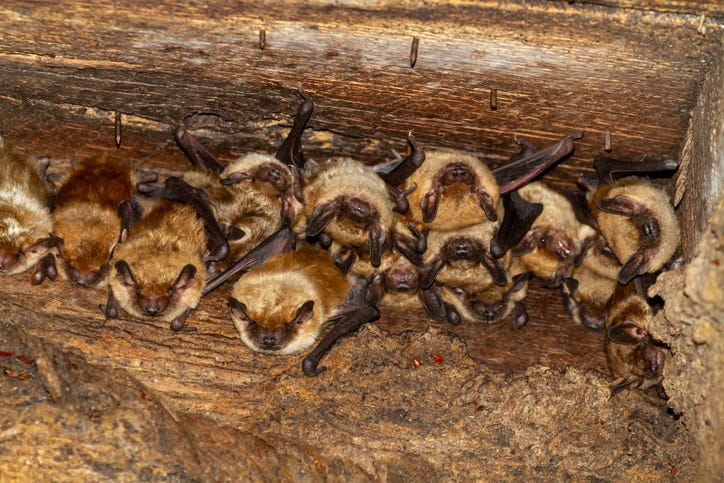
(WWJ) Have you seen some bats? The Michigan Department of Natural Resources wants to know about it.
After suffering a 90% population drop due to white-nose syndrome, Michigan’s bats are showing signs of recovery, according to the DNR.
Wildlife experts say the public can help support this rebound by reporting bat roost sightings in Metro Detroit and across the state.
With warmer weather, bats are emerging from hibernation, and that means you may seen them, possibly even in your own backyard.
Roosts — places where bats rest and raise young — can often be spotted at dusk or dawn in trees, chimneys, bridges or buildings.
“Roosts are vital to bats, but we still don’t know enough about how they use them across Michigan,” said John DePue, a bat specialist with the Michigan DNR.
Through the new Michigan Bat Roost Monitoring Program, residents can become “roost spotters” by logging sightings online.
No special training is needed — just observations at sunrise or sunset.
[Michigan is home to 9 species of bats — Here's what the DNR wants you to know about them.]
“You don’t need a science background, just a notepad, a flashlight and a bit of time,” said Nicolette Sexton, research assistant with the Michigan Natural Features Inventory. “This is an easy and rewarding way to connect with nature and make a real difference for our native bat species.”
To report a roost, open the DNR bat survey page and plug in location information. Photos help, but it’s important not to disturb the bats.
Five of Michigan’s nine bat species are listed as threatened or endangered, and that's not a good thing for several reasons. Bats play a key role in controlling insect populations, the DNR says, saving U.S. farmers billions in pest control costs.
If you do find bats in your attic, you'll want to avoid evicting them between mid-May and late July, when young bats are unable to fly. Officials recommend waiting until August to remove them, after baby bats have matured.
Homeowners can also install bat houses to provide a safe place to roost. Get instructions for building or buying a bat house and guidance on where to install it on the Bat Conservation International bat house website.
While bats are an important and helpful, rabies is a risk. If someone may have been bitten by a bat, the DNR says you should contact local health officials immediately.
